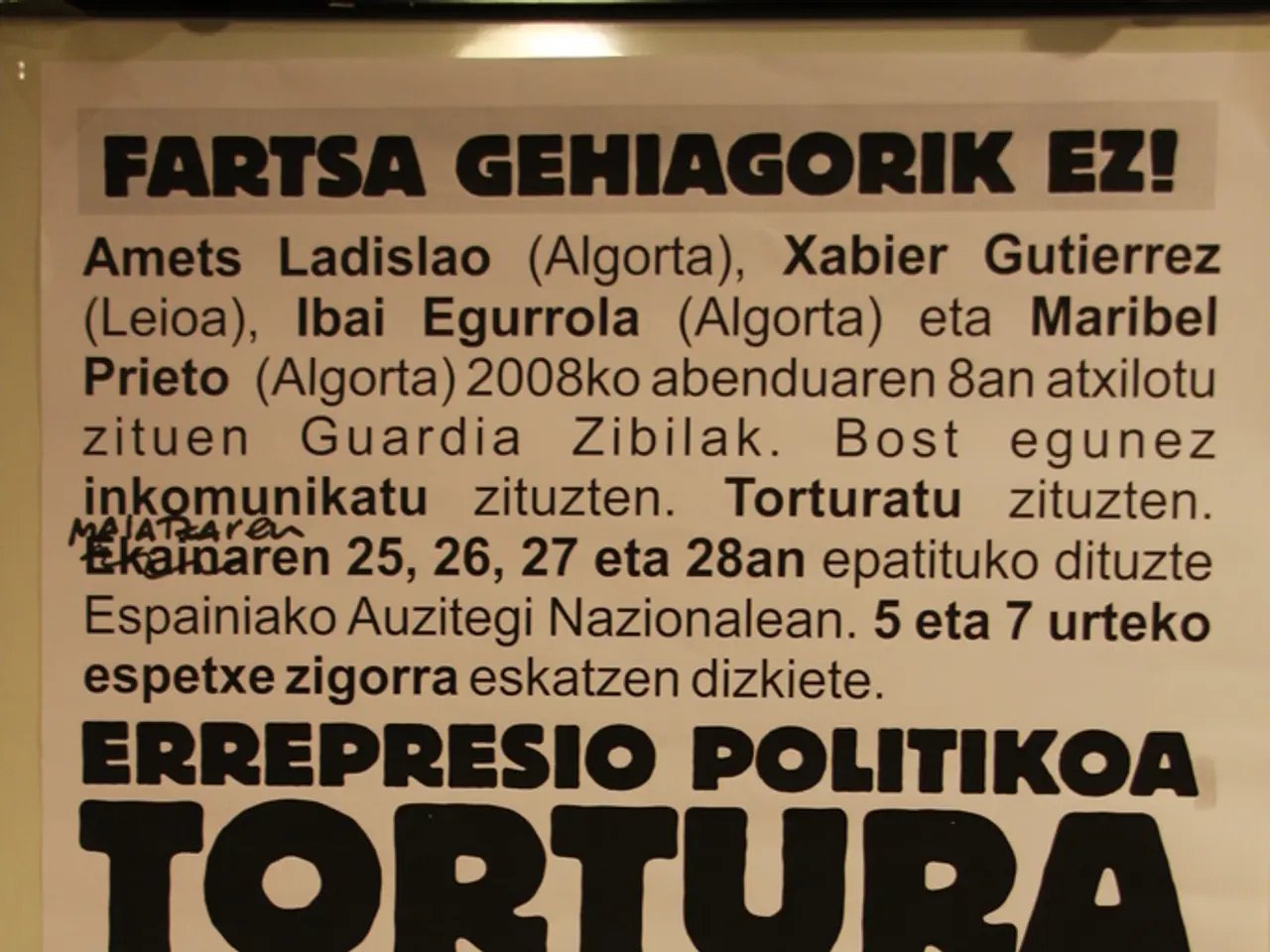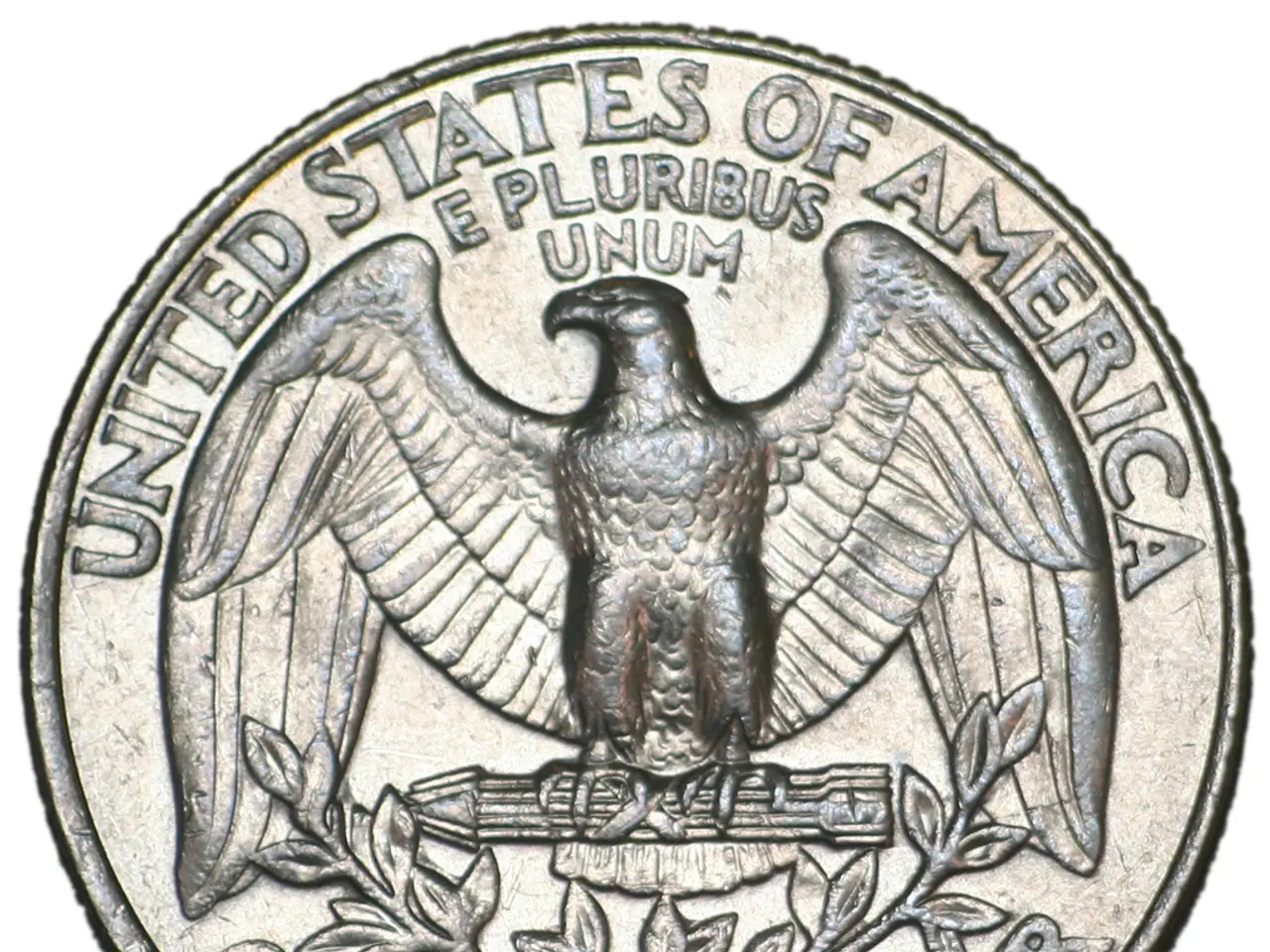Live Update: Luis Caputo objects to the coverage of Javier Milei's visit to La Rural on our website, with President 's backing of the cover.
In the world of Argentine politics, the week has been marked by a series of significant events.
The much-anticipated agreement with the International Monetary Fund (IMF) is awaiting the director's approval for the disbursement of $2 billion to Argentina. This comes as Javier Bolzico, President of ADEBA, expressed enthusiasm about the technical agreement, calling it a "sign of confidence" for the Argentine government.
Meanwhile, the Rural Exhibition, currently ongoing, is experiencing a somewhat subdued mood among attendees compared to last year's opening. At the event, Vice President Victoria Villarruel is expected to attend the inauguration, despite the tense relationship between the two leaders.
In a separate incident, Minister Luis Caputo complained about Clarín's front page depiction of his visit to La Rural. The complaint was focused on a photo showing Caputo holding his head, with the caption "The countryside, a headache for Caputo." President Javier Milei has also been vocal in his criticism of Clarín, calling it a "mental parasite" of "woke brains."
The government has set an 8-month deadline to privatize the country's largest electricity transmission network, starting in the second half of this year. However, the government's actions have been met with criticism from sectors such as the local clothing industry, with designer Benito Fernández stating that the promotion of imported clothing is destroying the local industry.
In a different context, a Peronist deputy, Pablo Yedlin, criticized Mario Lugones over the suspected fraud in the medical residency exams. Meanwhile, an advisor to Milei met with former Donald Trump advisor Brad Parscale to discuss potential investments in oil, gas, data centers, and mineral exploitation.
On the domestic front, the City of Buenos Aires is discussing a Penal Execution Law project aimed at creating a system that functions as a "second chance school" focused on protecting society. The Government officialized the increase in pensions, pensions, and AUH for August, with a 1.62% increase based on the variation in the Consumer Price Index (CPI) for June.
In a political clash, Maximiliano Ferraro, the national deputy and president of the Civic Coalition ARI, clashed with Minister Federico Sturzenegger over a suggestion to apply "the method of the French Revolution" to judges.
Lastly, Deputy Esteban Paulón requested information on the amount spent on President Javier Milei's trip to Córdoba for a private event called Derecha Fest. A Central Market internal struggle has also arisen due to a government official refusing to leave his post despite his mandate having expired.
In a response to a public denunciation about a province allegedly owing millions of pesos to national hospitals, a Kicillof official stated that the numbers and arguments given by the spokesman are a fabrication.
As always, these events serve as a snapshot of the dynamic and often complex world of Argentine politics. Stay tuned for more updates in the coming weeks.
- The French Revolution's method was controversially suggested by Maximiliano Ferraro in a political clash, a concept that, if implemented, could significantly impact Argentina's judicial system.
- While the focus in Argentine politics remains on domestic and international financial matters, such as the IMF agreement and the privatization of the electricity transmission network, local businesses like the clothing industry voice concerns about the promotion of imported goods threatening their industry.




